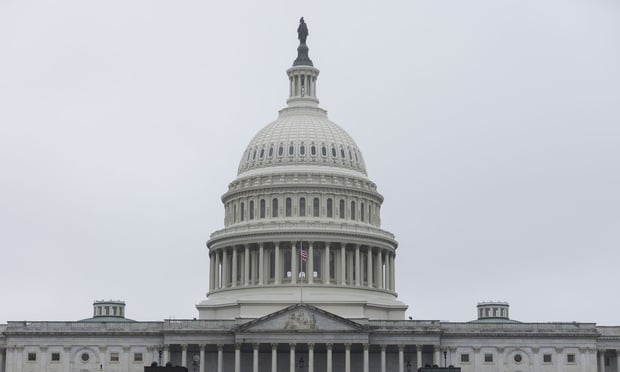 Credit: Thinkstock
Credit: Thinkstock
A new federal appeals court ruling could help states regulate the insurance benefits of workers covered by employers' multistate health insurance plans.
Employers and their benefits advisors have long believed that a provision in the Employee Retirement Income Security Act of 1974 preempts state efforts to regulate large, multistate employers' health plans. Congress included the provision to try to make benefits simpler and cheaper for multistate employers to offer.
Recommended For You
But a three-judge panel at the 6th U.S. Circuit Court of Appeals ruled Thursday that a New Hampshire fertility benefits mandate does apply to a multistate group health insurance plan that's sponsored by a Tennessee-based employer and administered by BlueCross BlueShield of Tennessee.
"The terms of an ERISA-governed employee benefit plan are not an escape hatch from valid state insurance regulations," according to an opinion by Judge Joan Larsen, who was appointed to her post by President Donald Trump during Trump's first term.
"'When an employee-benefits plan includes an insurance policy, contract terms mandated by state insurance law become plan terms,'" Larsen wrote, citing a 2013 7th U.S. Circuit Court of Appeals ruling.
Tennessee Blue could not immediately be reached for comment.
The New Hampshire Insurance Department welcomed the ruling.
"It is significant that the 6th Circuit Court has affirmed that insurance companies cannot bypass state insurance laws by invoking ERISA preemption," according to the New Hampshire Department. "This ruling enforces the strength of the state-based system of insurance regulation and affirms the NHID's authority to enforce New Hampshire’s insurance laws."
The case: The employer in the case, PhyNet, is based in Franklin, Tennessee, and provides support services for dermatologists in many states.
The complaint describes the plan as a group health insurance plan, not as a self-insured health plan.
B.C., a PhyNet employee who lives in New Hampshire, sought coverage for fertility treatments she received in 2020 and 2021.
New Hampshire requires health insurers to cover fertility treatments.
Tennessee does not require insurers to cover fertility treatments.
The district court case: Christopher Nicolopoulos, who was then the New Hampshire insurance commissioner, sued to enforce the New Hampshire mandate.
Tennessee Blue argued in court that the New Hampshire enforcement effort conflicted with its duty as an ERISA plan fiduciary to act in accordance with the terms of the plan. Originally, Tennessee Blue did not make arguments based on its capacity as an insurer.
A U.S. District Court judge in Chattanooga, Tennessee, ruled against Tennessee Blue, and Tennessee Blue appealed.
The appeals court case: Larsen suggested in the opinion that Tennessee Blue might have had arguments against the New Hampshire enforcement effort based on its status as an insurer, rather than as a plan fiduciary, but that it could not rely on those arguments in an appeal because it had not presented those arguments in district court.
Larsen said a 1999 Supreme Court ruling on UNUM Life v. Ward supports New Hampshire's efforts to enforce its fertility benefits mandate.
The Ward ruling shows that ERISA does not preempt state insurance laws, Larsen wrote.
Larsen does not discuss whether the logic for an employer's self-insured health plan would be different than the logic for a group health insurance plan covered by ERISA.
The backdrop: The new ruling appears as pharmacists and their supporters are enlisting states in efforts to impose new regulations on pharmacy benefit managers, including PBMs that serve health plans governed by ERISA.
Related: Supreme Court takes up PBM case: Does ERISA preempt states' efforts to regulate drug prices?
The U.S. Supreme Court ruled in a 2020 opinion, on Rutledge v. Pharmaceutical Management Association, that states could adopt a state law that affects an ERISA plan if the law has no connection with ERISA or ERISA plans.
The Supreme Court is now considering another case, Mulready v. PCMA, that could affect whether states can regulate pharmacy benefit managers or other vendors that are serving employer health plans governed by ERISA.
Ultimately, the court rulings on disputes over state efforts to regulate PBMs' efforts to serve ERISA plans could affect the rules for all service providers that work with ERISA plans and ERISA plan participants.
© Touchpoint Markets, All Rights Reserved. Request academic re-use from www.copyright.com. All other uses, submit a request to [email protected]. For more inforrmation visit Asset & Logo Licensing.






